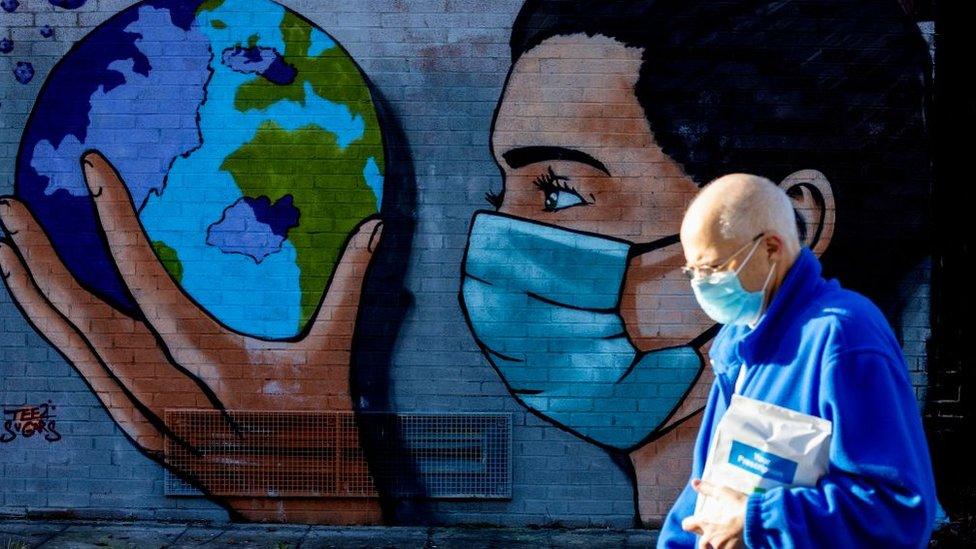Covid: Art used to document the pandemic in Wales
- Published
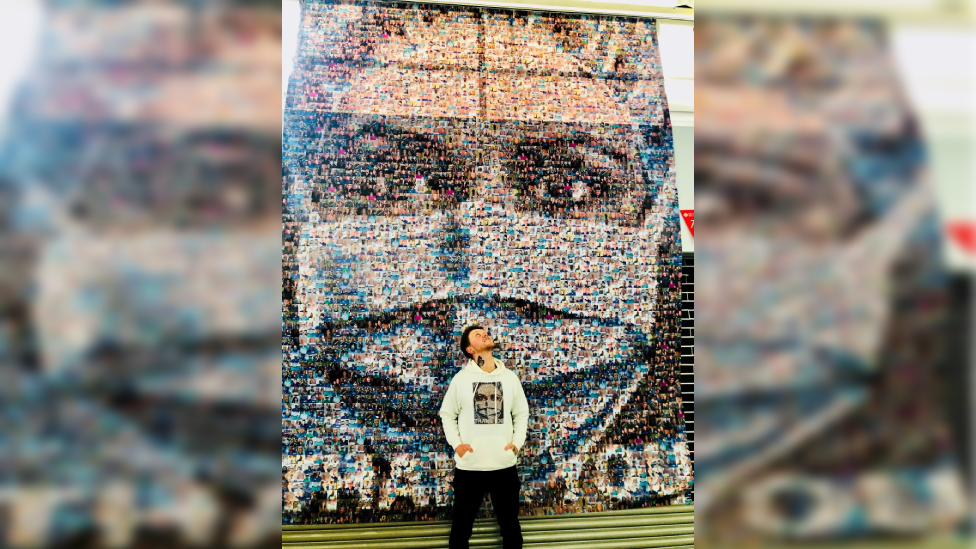
Nathan Wyburn said he wanted to thank NHS workers though his art
When the world seemed to shut down in March 2020 many of us had to adjust to a new normal.
Some artists used this time to capture history as it happened.
From doodling families having their vaccines, to depicting intensive care staff trying to save patients, artists recorded some of the most significant moments in the pandemic.
Now they hope the touching moments their art has captured over the past 16 months will become part of history.
'Focus on everyday heroes'
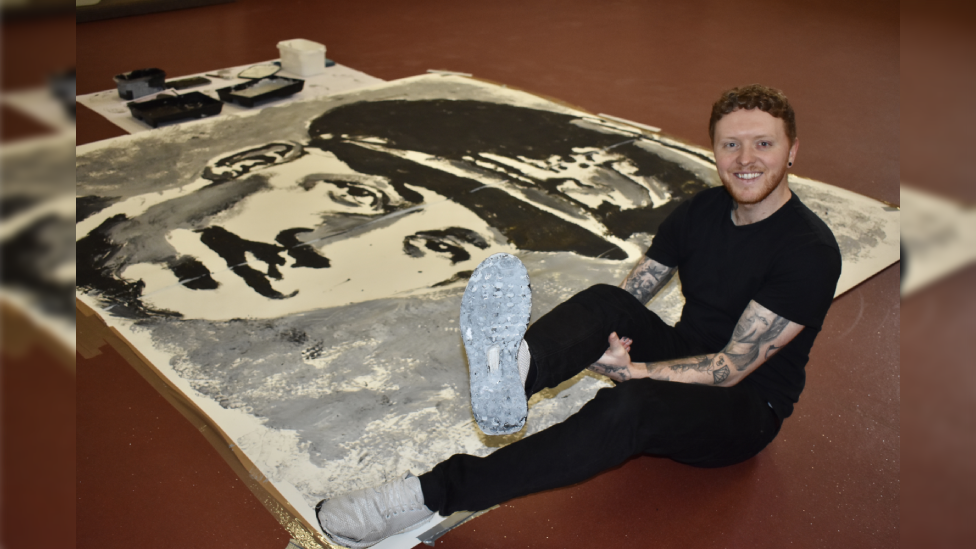
Nathan created his painting of Capt Sir Tom after he walked 100 laps of his garden in lockdown
Nathan Wyburn is an artist who specialises in celebrity portraits using non-traditional mediums such as food.
His work includes a portrait of Gareth Thomas made using fake blood and Capt Sir Tom Moore painted by Nathan walking in paint.
During the pandemic, he created a portrait of an NHS nurse made of 200 pictures of nurses wearing their scrubs and personal protective equipment (PPE) as a thank you to the key workers who have worked throughout the pandemic.
Nathan said it "just felt right" to focus on key workers, and after a worrying start when the pandemic first hit he "realised it was kind of the perfect time for me to start creating work that meant something more to me, and focus on the everyday heroes".
He said: "We've seen that more so throughout the pandemic, we've relied on creatives... our entertainment, our sanity, our mental health was 100% reliant on watching Netflix and Facebook lives, drawing rainbows for the windows and just getting creative. It needs to be looked back on in history."
War artist Dan Peterson was inspired by talk of medics being 'on the front line'
'A piece of history'
Dan Peterson is an illustrator who was able to go inside the Dragon's Heart Hospital built at the Principality Stadium last year.
He said he realised when the first lockdown happened that "we were all making our way through what we now know is a piece of history" and it was important to remember what we have been through.
"I wanted to record the scale of it. The entire pitch was covered in four really large marquee style tents.
"Even though it's a field hospital when you actually got inside it, if you didn't look up... you didn't really know that you were inside a temporary hospital."
During his time sketching at the hospital he spoke to recovering patients, nurses and cleaners and witnessed the efforts there first hand.
Dan said: "I think it is massively important because these things need to be recorded through art."
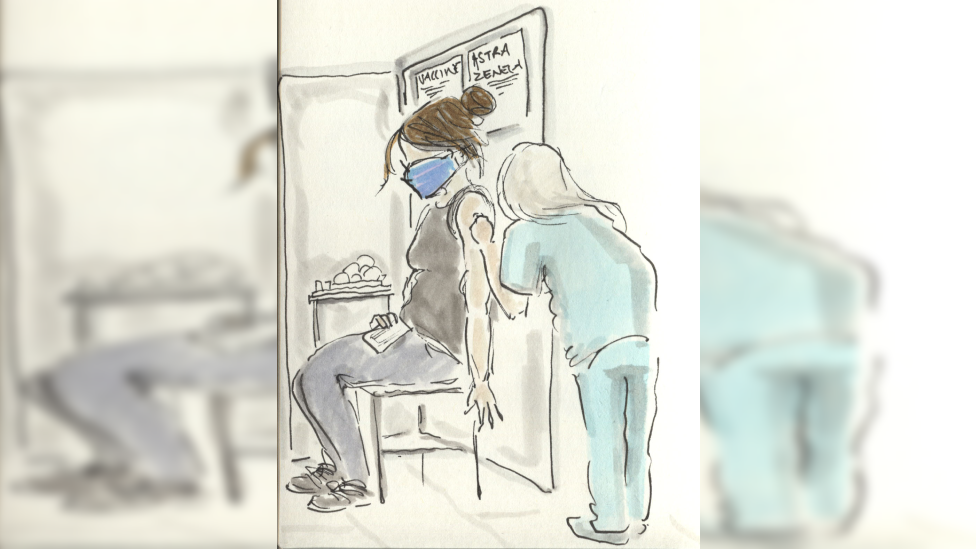
Angie Stevens has been making doodles of her family for 10 years
'History is about the personal'
Angie Stevens has been drawing for 10 years, documenting her family's experiences on her website doodlemum.com, external.
Angie said drawing had helped her make sense of the pandemic and she wanted to portray how it was affecting her family.
Her drawings include Angie getting her vaccine with the caption 'Hope' and her daughter taking a lateral flow test at the breakfast table before school.
Angie said she thought her doodles documenting the pandemic from her point of view would be important in years to come.
"My blog's always been about family and the little things we get up to in a day," she said.
"We've got our data and graphs but history is about the personal, the everyday. I'm a normal person living my life and how it affects me is just as important."
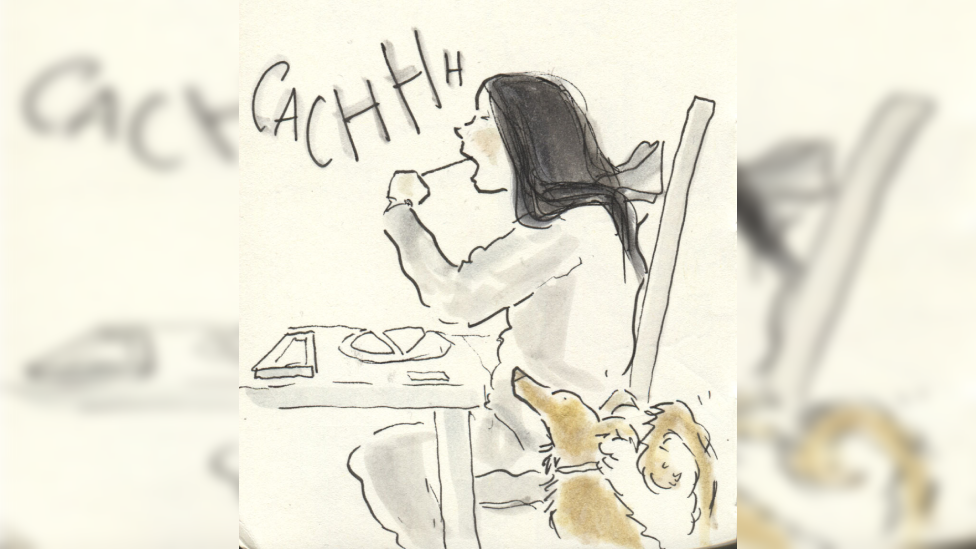
Drawing helped Angie grasp what was going on
National Museum Wales said it currently had no plans for a permanent Covid artwork exhibition at one of its museums, but had been working with health boards across Wales to explore how the museum's collection could enrich and compliment the artwork currently on display in hospitals.
A museum official said: "They aim to bring comfort to the patients at the temporary hospitals and permanent locations by showcasing artwork that depicts their area."
The Welsh government has also been looking for ways to document the pandemic and has announced the commemorative woodlands, external.
With two locations in Wales, the woodlands are intended as a symbol of Wales' resilience during the pandemic.
First Minister Mark Drakeford said: "These woodlands will grow into natural spaces of reflection, where family and others can come to remember all those we have lost."
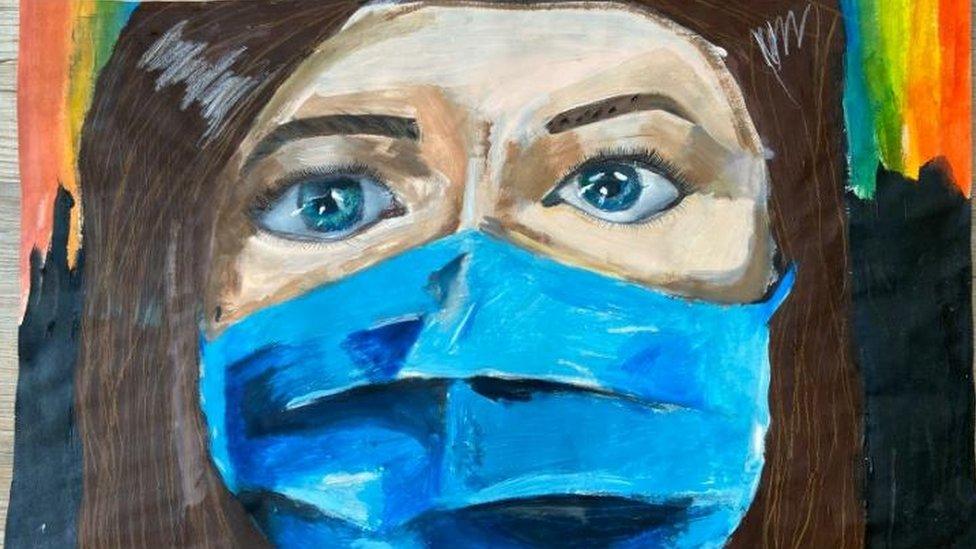
The time capsule includes artwork and poems from young people in Caerphilly
Caerphilly Youth Forum has put together a time capsule to document how young people were living through the pandemic in 2020.
It asked young people across the borough to send in photos, drawings, artwork, poems and small items that captured how life had changed.
The time capsule was presented to council leader Philippa Marsden by the forum's Lottie Davies.
The capsule was placed in the wall of Penallta House council chamber by Ms Marsden, who said it is "a reminder of how young people demonstrated such strength of character and determination to overcome the many difficulties the pandemic brought."
Related topics
- Published30 May 2020
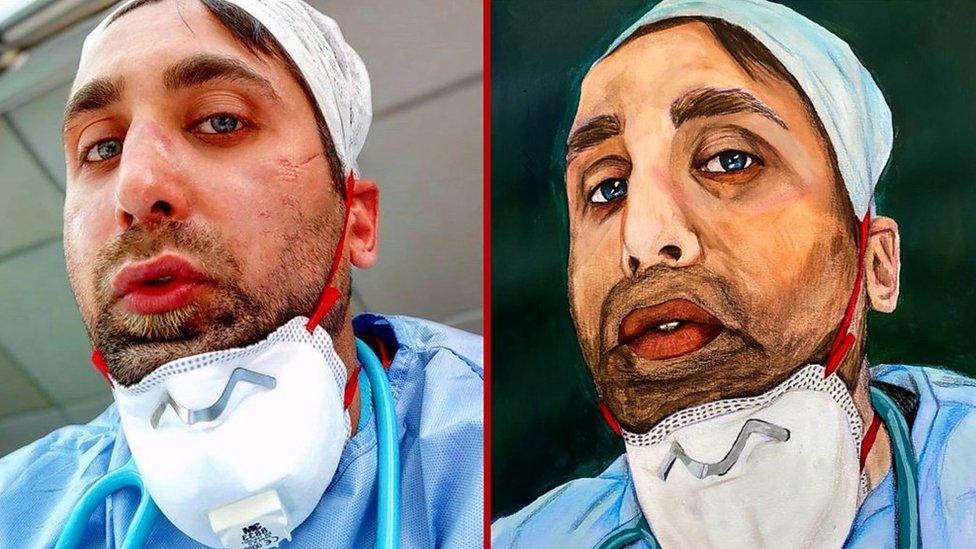
- Published8 June 2021
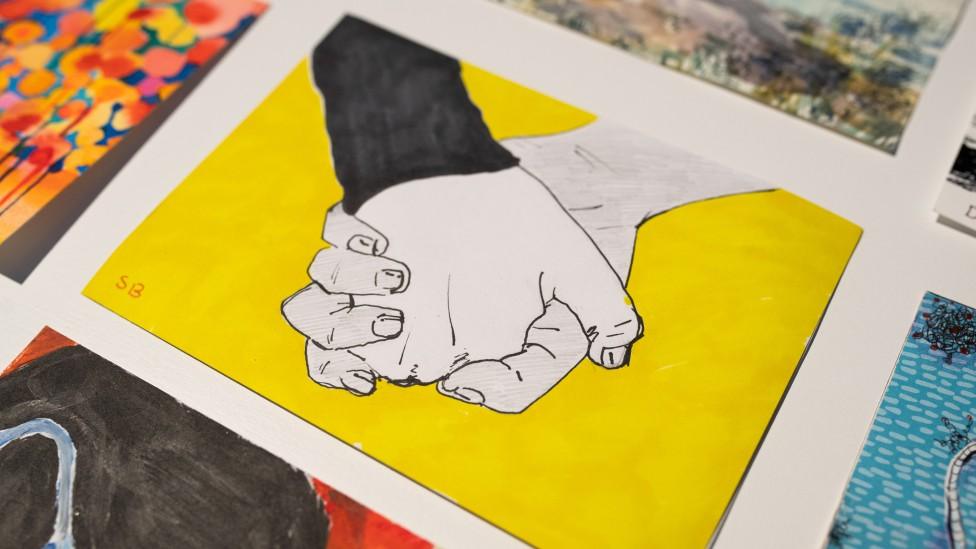
- Published9 February 2021
